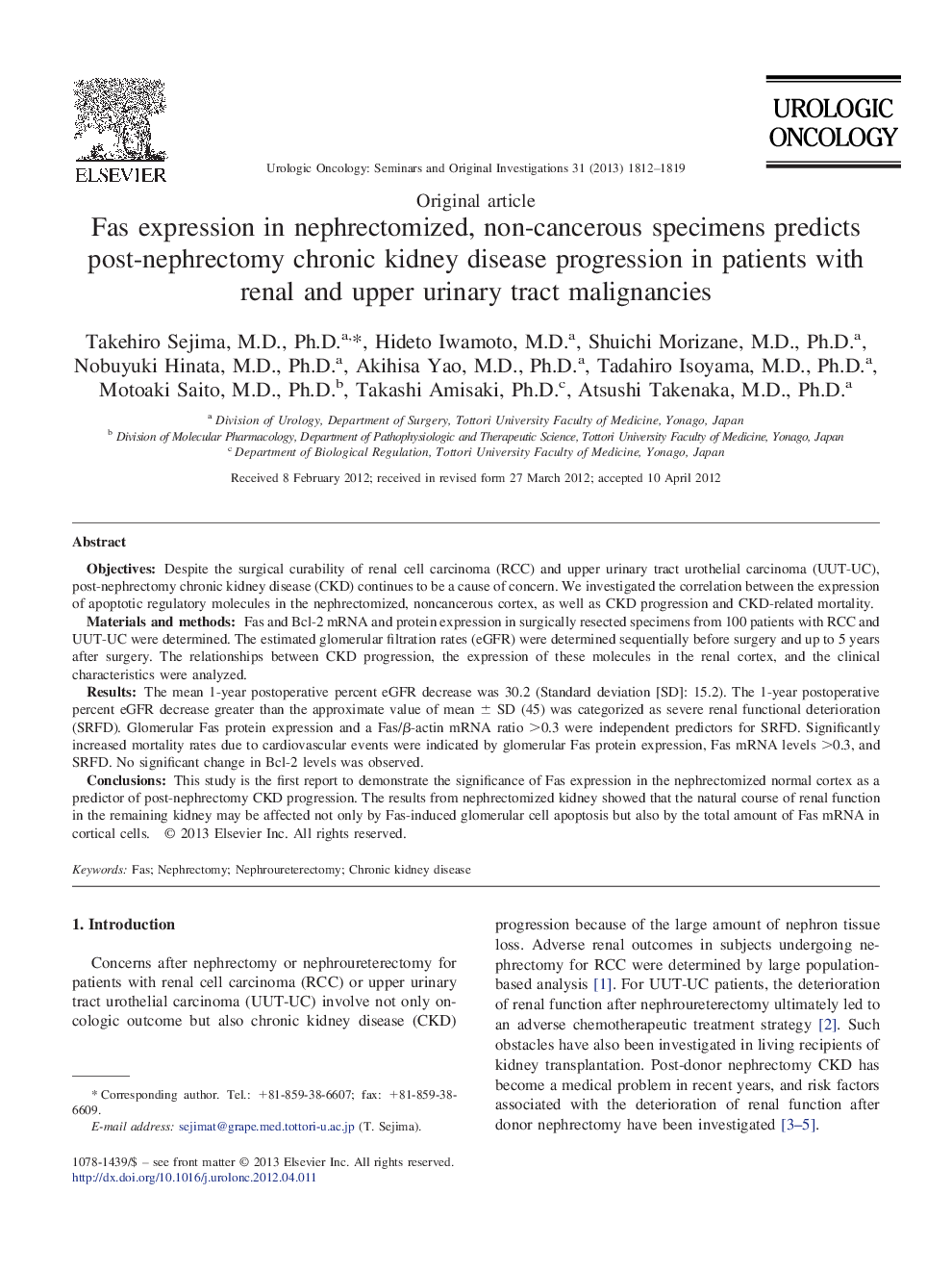| Article ID | Journal | Published Year | Pages | File Type |
|---|---|---|---|---|
| 4000080 | Urologic Oncology: Seminars and Original Investigations | 2013 | 8 Pages |
ObjectivesDespite the surgical curability of renal cell carcinoma (RCC) and upper urinary tract urothelial carcinoma (UUT-UC), post-nephrectomy chronic kidney disease (CKD) continues to be a cause of concern. We investigated the correlation between the expression of apoptotic regulatory molecules in the nephrectomized, noncancerous cortex, as well as CKD progression and CKD-related mortality.Materials and methodsFas and Bcl-2 mRNA and protein expression in surgically resected specimens from 100 patients with RCC and UUT-UC were determined. The estimated glomerular filtration rates (eGFR) were determined sequentially before surgery and up to 5 years after surgery. The relationships between CKD progression, the expression of these molecules in the renal cortex, and the clinical characteristics were analyzed.ResultsThe mean 1-year postoperative percent eGFR decrease was 30.2 (Standard deviation [SD]: 15.2). The 1-year postoperative percent eGFR decrease greater than the approximate value of mean ± SD (45) was categorized as severe renal functional deterioration (SRFD). Glomerular Fas protein expression and a Fas/β-actin mRNA ratio >0.3 were independent predictors for SRFD. Significantly increased mortality rates due to cardiovascular events were indicated by glomerular Fas protein expression, Fas mRNA levels >0.3, and SRFD. No significant change in Bcl-2 levels was observed.ConclusionsThis study is the first report to demonstrate the significance of Fas expression in the nephrectomized normal cortex as a predictor of post-nephrectomy CKD progression. The results from nephrectomized kidney showed that the natural course of renal function in the remaining kidney may be affected not only by Fas-induced glomerular cell apoptosis but also by the total amount of Fas mRNA in cortical cells.
